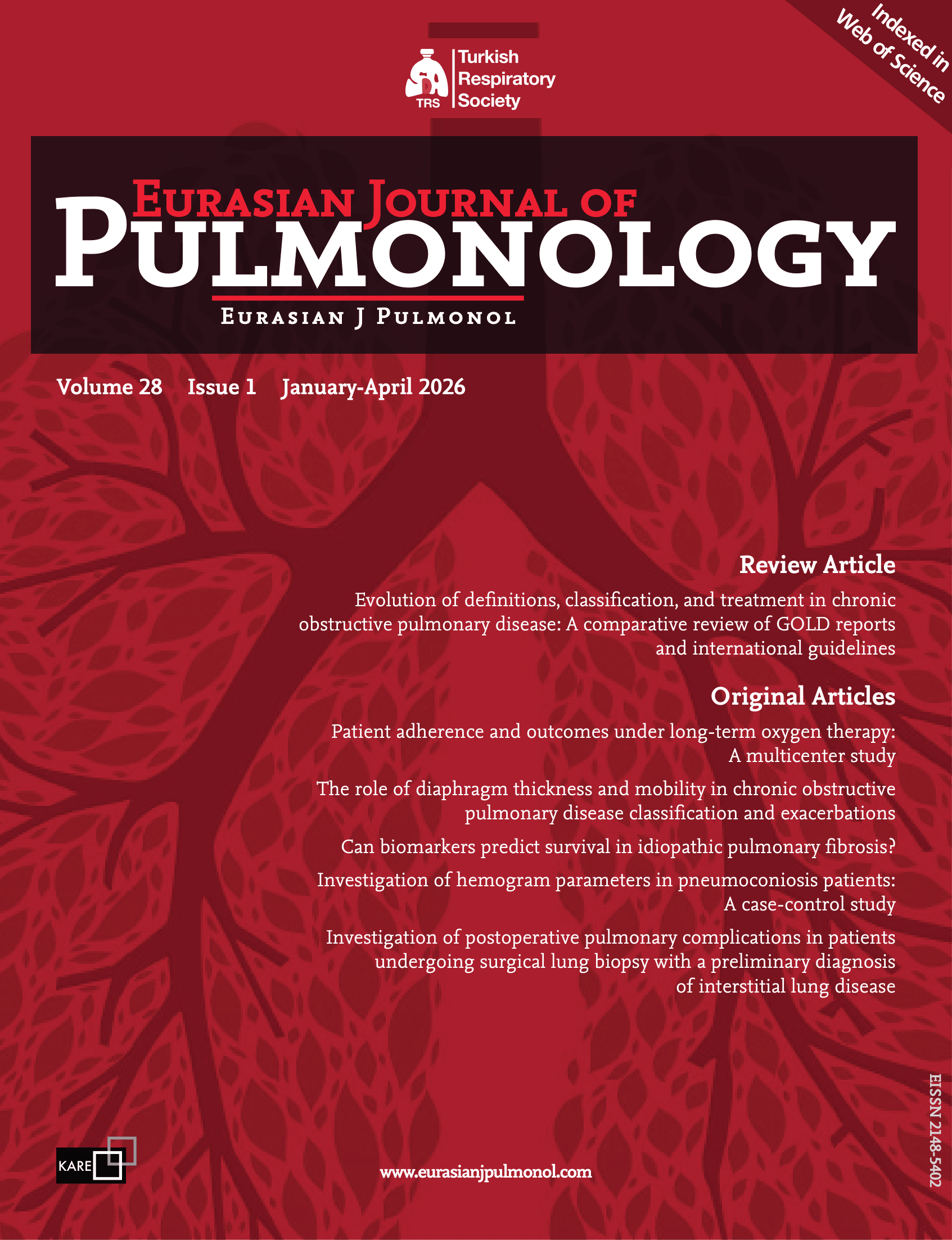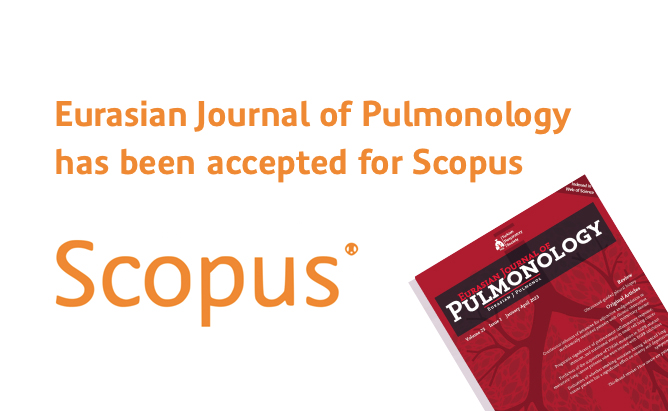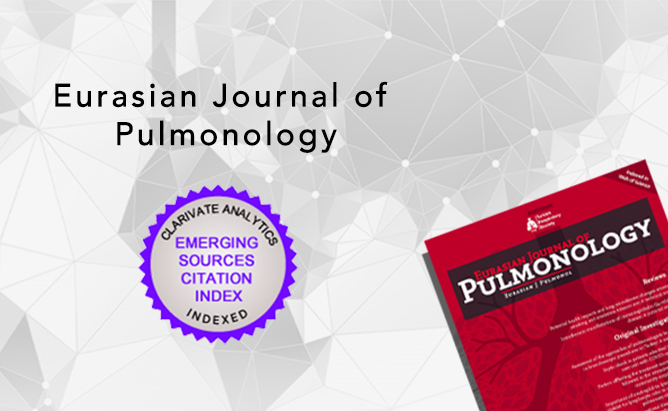Abstract
BACKGROUND AND AIM: The aim of this study was to assess the factors affecting T790M mutation acquisition in epidermal growth factor receptor (EGFR)-mutant metastatic non-small cell lung cancer (mNSCLC) patients.
METHODS: We evaluated the data of EGFR-mutant metastatic lung cancer patients who progressed under tyrosine kinase inhibitors (TKIs) retrospectively. Logistic regression analysis was used to examine the association between the acquisition of the T790M mutation and clinicopathological characteristics.
RESULTS: The study enlisted the participation of 52 patients. Exon 19, Exon 21, and uncommon mutation distributions at diagnosis were 67.3%, 23.1%, and 9.6%, respectively. After the disease progressed under TKIs, the presence of T790M mutation was evaluated with liquid (75%) or tissue biopsies (25%). In 33 (63.5%) patients, T790M mutations were detected. Gender, age, de novo metastatic disease, primary tumor localization (left or right lung), number of metastatic sites, type of TKI, smoking, objective response, and type of biopsy were not statistically significant factors for T790M mutation acquisition in logistic regression analysis. However, progression-free survival (PFS) time (p=0.03) and EGFR inhibitor-related toxicity (p=0.004) were found as predictors of acquisition of T790M mutation.
CONCLUSIONS: Due to the rarity of T790M mutations in EGFR-mutant mNSCLC patients treated with EGFR inhibitors, evidence of their acquisition is limited. In this study, we detected that the presence of EGFR inhibitor-related toxicity and PFS time longer than 12 months were predictors for T790M mutation acquisition.




 Izzet Dogan1
Izzet Dogan1 




